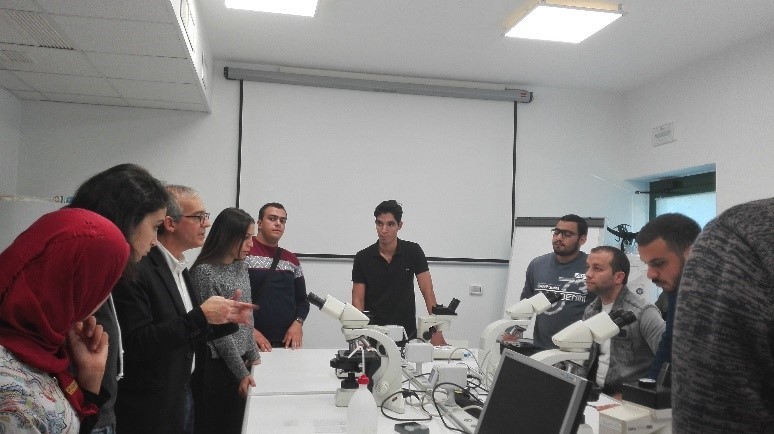The plant pathology laboratory is equipped to receive and maintain plant material in isolation for the identification and diagnosis of vegetable and fruit crop diseases, caused by viruses, virus-like, bacteria, fungi, phytoplasmas, insects, mites and nematodes, included in quarantine and non-quarantine lists, in compliance with technical protocols recognised at national and European level (EPPO standards, IPPC-ISPMs) and updated in line with technological advances and relevant official validations.
The laboratory is divided into 5 operational units:
Analysis
The laboratory is approved by Regione Puglia for disease diagnostic testing and the characterisation of causal agents via isolation techniques on artificial substrates, serological (ELISA, DTBIA) and molecular assays (molecular hybridisation, PCR, real-time PCR, real-time LAMP).
The following activities are carried out in the laboratory:
Main instruments
The laboratory is equipped to support training, research and early diagnosis of large-scale infections and the smart phytosanitary management of agricultural and natural resources. The products and services developed integrate mapping and traditional monitoring/surveillance systems with geomatic and high technology information methodologies based on the Global Positioning System, remote sensing, management and spatial modeling using GIS, and networked sensors.
Analysis
The following activities are performed in the laboratory:
Main instruments
no images were found
The laboratory is equipped for the sanitation and propagation of plant healthy material via in vitro culture techniques (micropropagation, meristem-tip culture, micrografting, and somatic embryogenesis).
Main instruments
no images were found

The laboratory is primarily intended for training purposes for the students of the Master of Science course of “Sustainable Integrated Pest Management Technologies For Mediterranean Fruit and Vegetable Crops”. It is supplied with large benches, equipment and apparatuses (chemical fume hood, microscopes, stereo-microscopes, etc.) used to carry out experimental activities for teaching and demonstration purposes. Video projection system for on-screen display of tests is also available.